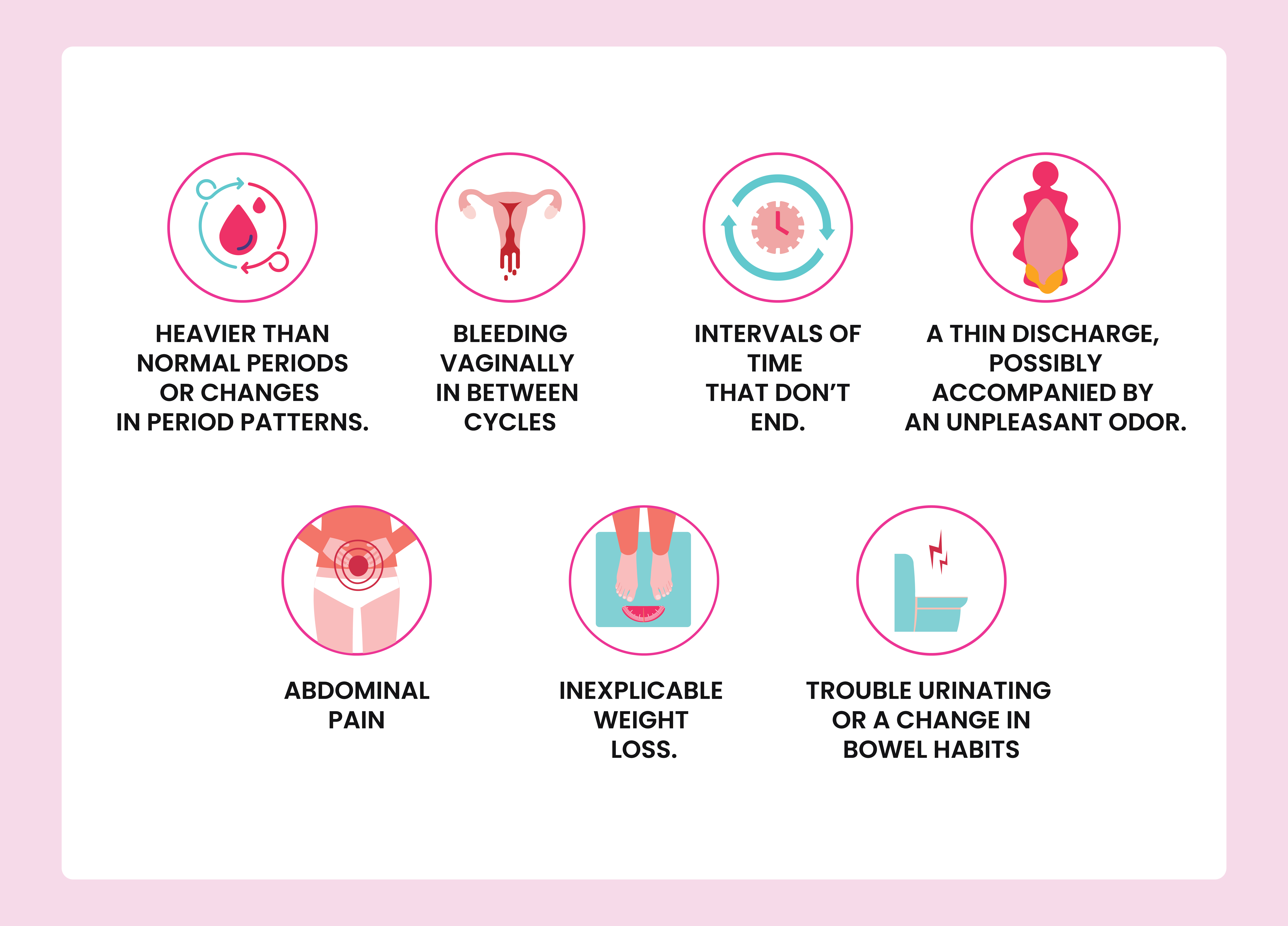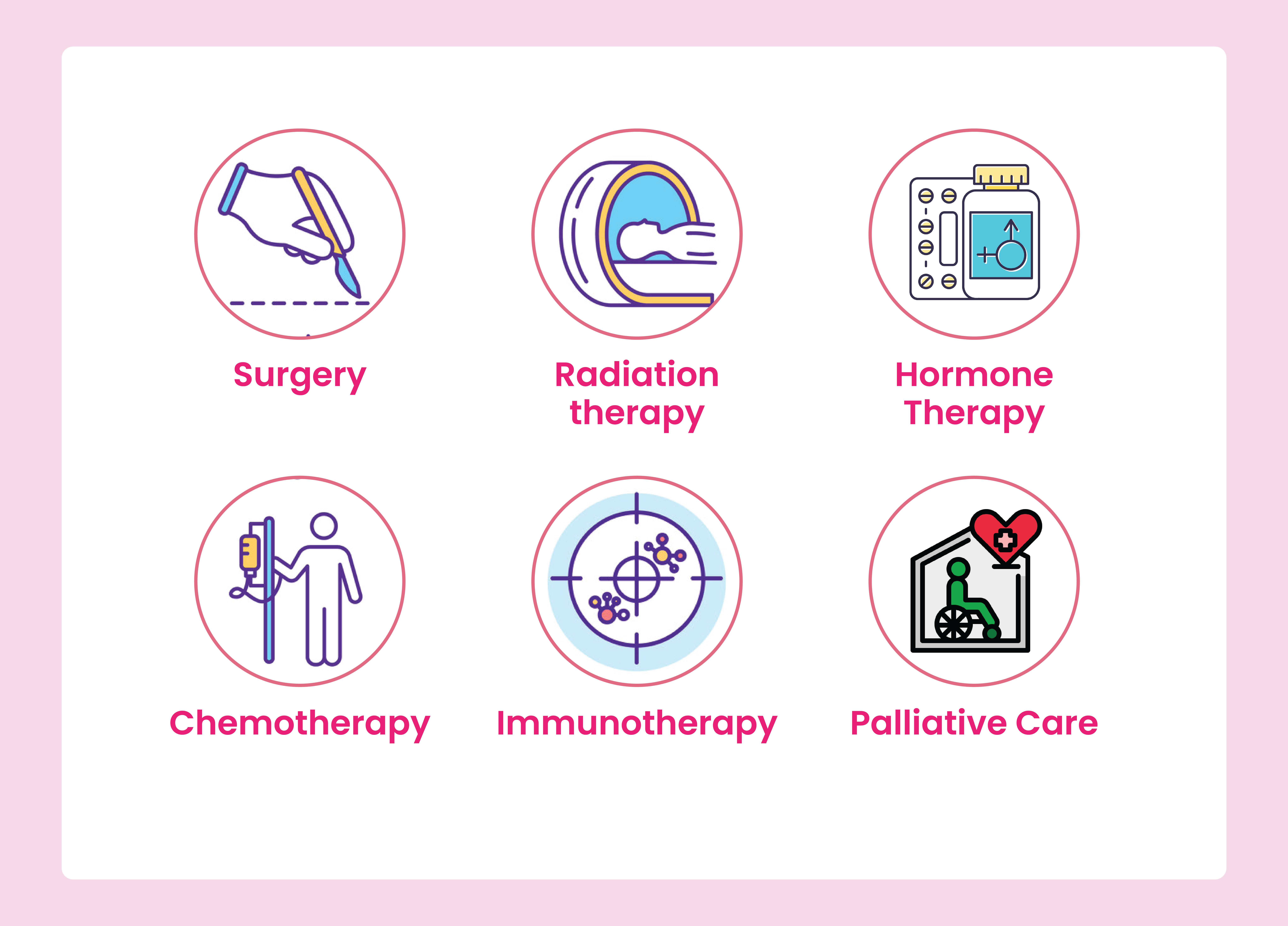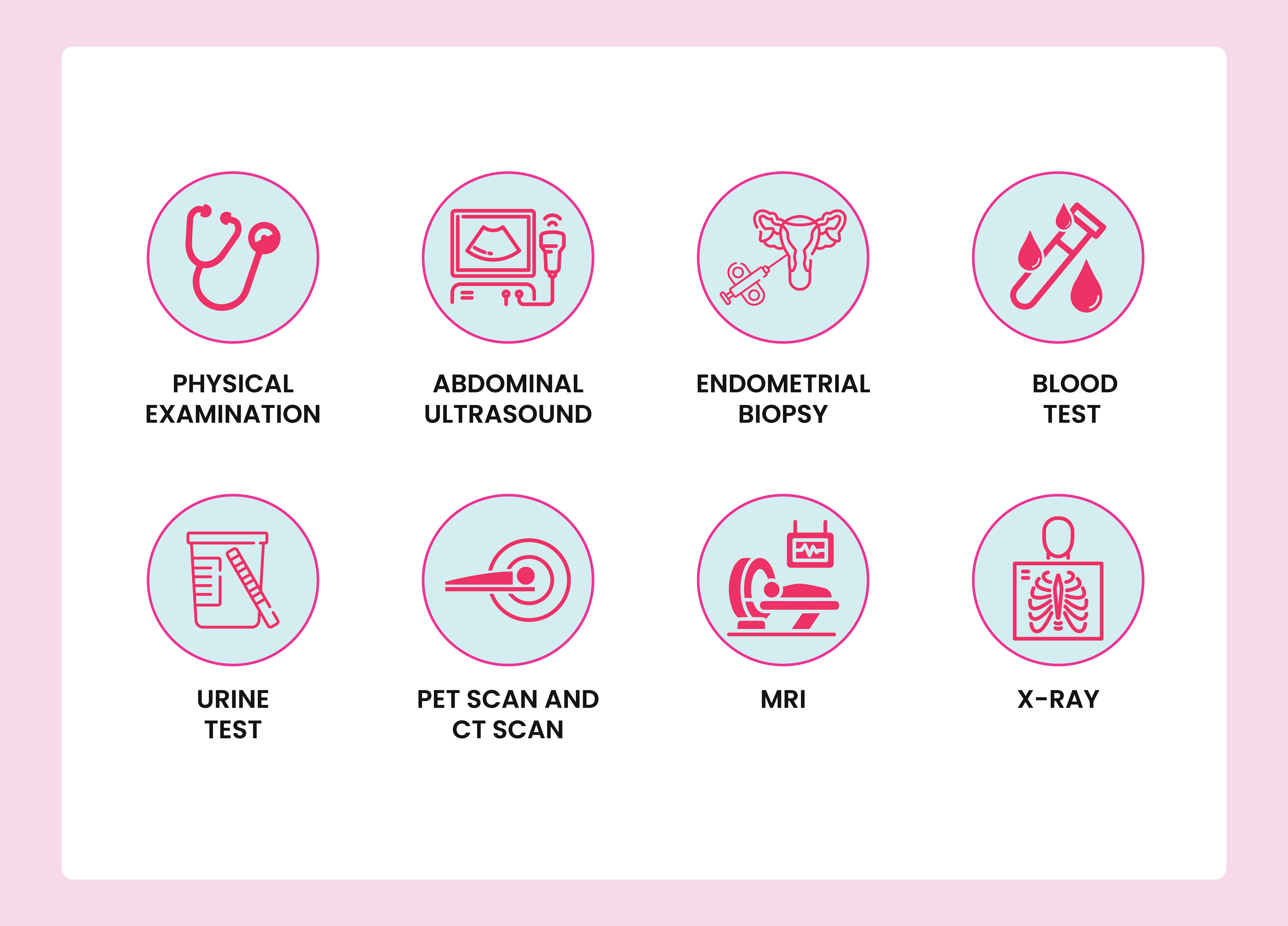

Get in contact with Dr. Manasi Shah, the best gynec oncologist in Ahmedabad, if you encounter any of these symptoms as they may also be signs of other illnesses.

If uterine cancer is detected early and has not spread, surgery is the sole required course of therapy for affected women.
Radiation therapy: This additional treatment reduces the risk of cancer recurrence by utilizing X-rays to eliminate cancer cells.
Hormone therapy: If the cancer has returned or expanded, it is typically treated with hormone therapy. In certain cases, it is also utilized in the absence of surgery.
Chemotherapy is used to treat locally advanced uterine cancer after surgery, either alone or in combination with radiation, as well as in cases when the disease recurs after radiation or surgery, does not respond to hormone treatment, or both.
Immunotherapy- used in locally advanced or metastatic setting.
Palliative care: The goal of palliative care is to lessen the symptoms of cancer in order to enhance your quality of life. Dr. Manasi Shah, the Best Medical Oncologist in Ahmedabad, will explore your preferences and choose the best course of action after a thorough discussion.